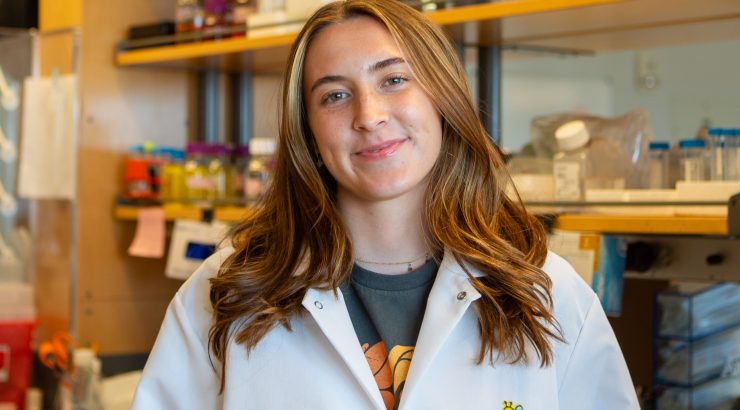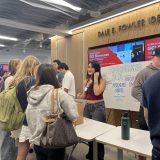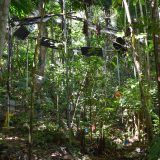Internship Spotlight: Vanderbilt Bone Metastatic Breast Cancer Lab Molly Niswender '26 is investigating the role of T-cells on osteoclast activity in bone
August 9, 2024
Hello Schmid College! My name is Molly Niswender, and I am a junior biochemistry and molecular biology major with minors in honors and documentary film. This summer, I had the opportunity to intern in a bone metastatic breast cancer lab at Vanderbilt University Medical Center’s Bone Biology department under Dr. Rachelle Johnson.
Vanderbilt is located in Nashville, Tennessee, which is also my hometown. In high school, I was paired with Dr. Johnson through a program that connected high school students to college-level STEM opportunities. Unfortunately, COVID-19 canceled this program for me. Still, I had always admired Dr. Johnson’s breast cancer work and the supportive environment she created in her laboratory when I visited in high school. I reached out after my first year at Chapman about potentially working with her the following summer, and I am so grateful for her faith in me. I have since been having a phenomenal summer learning from many talented Ph.D. students in the cancer biology program here at Vanderbilt.
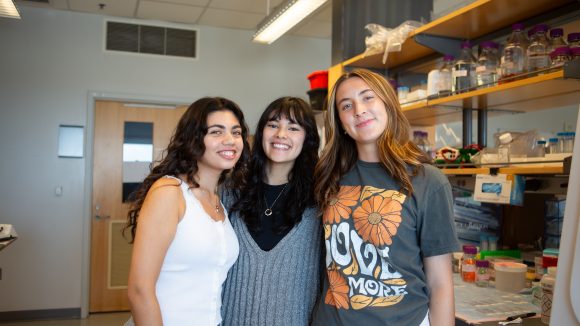
I am currently working on a project alongside two other undergraduates (from Belmont University). We are conducting two co-cultures to investigate the role of T-cells on osteoclast activity in the bone. The Ph.D. candidate I am working with looks at the bone microenvironment and effects of immune checkpoint inhibitor (ICI) therapy, a novel cancer treatment that blocks certain checkpoints on T-cells so that the body can become more effective at killing cancer cells. This treatment is approved for various types of cancer, including the highly aggressive triple-negative breast cancer that, if metastasized to the bone, has about a 30% five-year survival rate.
This therapy is becoming more popular by the day, but the Johnson lab fears that ICI therapy can have worsening effects on the bone microenvironment. While this therapy is effective at suppressing the primary tumor, it can increase fracture risk in bone in breast cancer inoculated mice as well as in actual cancer patients. We know that the bone is constantly formed and reabsorbed in a constant cycle by the bone-building cells (osteoblasts) and the bone-resorption cells (osteoclasts) — thus we also know that there must be an imbalance of these cells for the bone to become weakened.
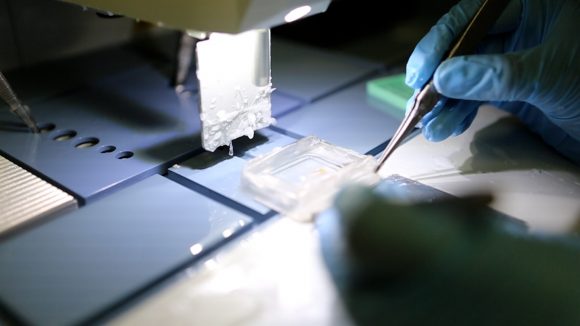
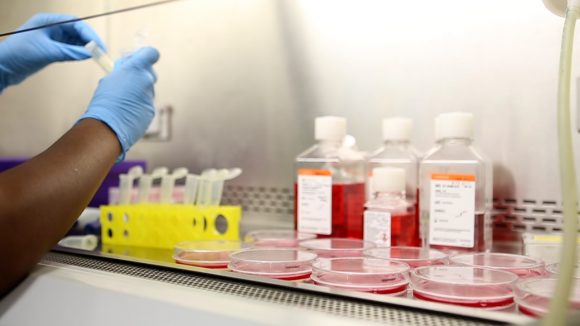
This summer, our project focuses on identifying why this imbalance occurs and what in the body is causing it; our Ph.D. candidate hypothesizes that the process may be T-cell mediated. Therefore, our co-cultures test the hypothesis that T-cells may enhance osteoclast resorptive activity (causing more bone loss), as well as the question of whether T cells are capable of killing breast cancer tumor cells alone and/or in the presence of a-PD-1 (one of the drugs commonly used in ICI therapy). These questions are interesting for many reasons, one being the application to improving immunotherapy patients’ cancer therapy experience. While we are very much still in the experimentation phase of this project, we are optimistic about the hypothesis that T-cells may be involved in this process of bone degradation. I am very grateful to have been able to contribute to this research that I find fascinating, and once my time is over in this lab, I look forward to seeing even more discoveries related to this project from the Johnson lab.
While assisting in this exciting co-culture, I have also been working on a lab website that includes spotlight videos of each Ph.D. candidate and postdoctoral fellow’s work. As I mentioned earlier, I am studying documentary at Chapman alongside biochemistry, and I very passionately believe that the future of science will be, in part, communicated through film. Being able to break down scientific concepts so that the public can understand them is a skill that all excellent scientists possess, and I have loved working to create videos with those in my lab to better understand their work. Please check out the Johnson lab website, once finalized in a couple of months, to learn more about their phenomenal research and members. It has truly been a privilege to learn more about the field of cancer biology through this internship. I am excited to utilize the skills I have learned in my eventual career, as well as back in Dr. Bisoffi and Dr. Lopez’s breast cancer lab at Chapman this semester. Thank you again, Johnson Lab!
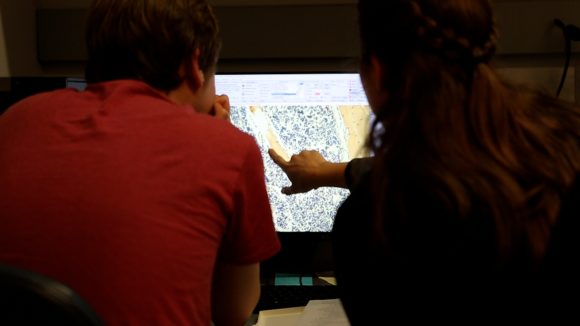
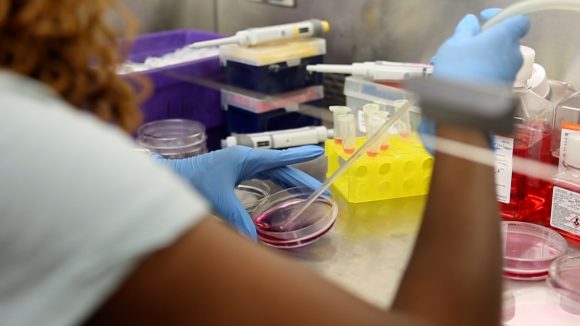 Check out Schmid’s TikTok account for Molly’s video about her experience in the lab!
Check out Schmid’s TikTok account for Molly’s video about her experience in the lab!
